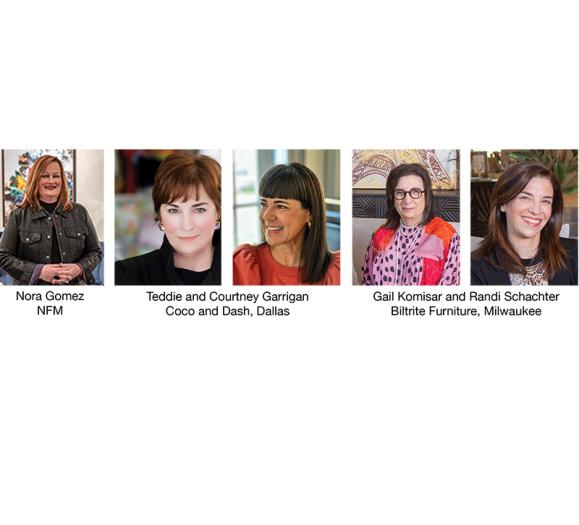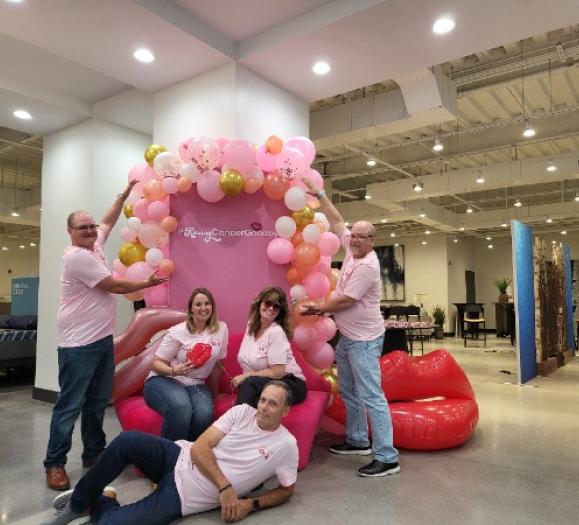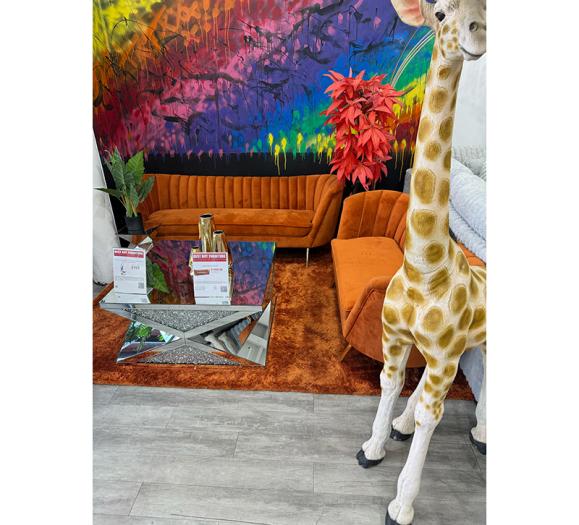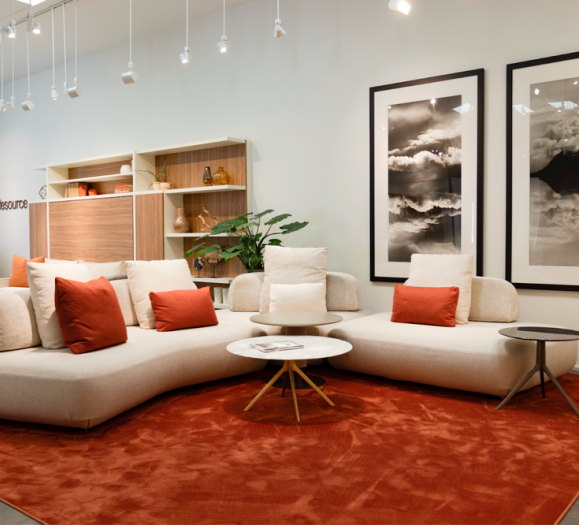If you’re a regular reader of Furniture, Lighting & Decor, you’ve seen Jamie Merida’s name. He’s been a panelist on our virtual seminars, and we’ve talked with him about how he’s built his brand. Why? Because Merida is someone who is doing it all — Bountiful Home and Flooring stores, Jamie Merida Interiors and an extensive product collection with Chelsea House.
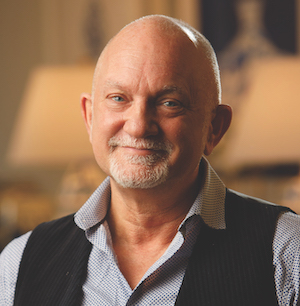
Merida has taken something of a winding road to the businesses he thrives in now. From classic pianist to managing a busy Baltimore Domino’s pizza chain, it was taking over his parents’ antiques business that ultimately led him to home furnishings. Today, the crux of his operation would be Bountiful Home, a 15,000-square-foot home furnishings and lifestyle store located in Easton, MD, that incorporates everything from high-end sofas to high-end chocolate. He also opened Bountiful Flooring to help with finding the flooring products that evaded him in his eponymous interior design business. To further ensure his aesthetic was available, he started a lucrative product design collaboration with Chelsea House, gleaning inspiration from the antiques that got him started, but with updated flair.
“Bountiful Home is a reflection of who we are,” Merida says, adding his design aesthetic could be termed ‘casual elegance’. “The style at Bountiful is traditional made modern.”
Benefits of Both Worlds
The intertwined retail and design businesses, Merida says, help feed the success of the other. “For me as a retailer and designer, I can take a client through a showroom, and ask them, ‘How do you like the fit?’ They can test the quality,” he says. “And it’s so easy to solve a problem, because we can order that customer something else. And we can put the return back on the showroom floor.”
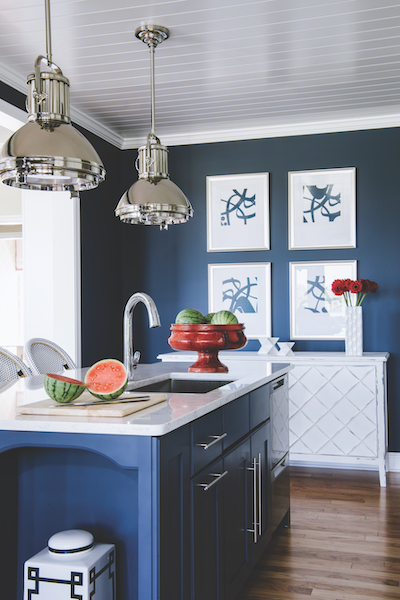
A designer doesn’t necessarily have that option without a retail showroom, Merida adds, and a retailer without the design component is relying on customers with great taste or who are working with designers. Having both sides of the business removes some of the guesswork and challenges.
Merida is not one to shy away from opportunities to grow his business. He started with Bountiful’s home store and delved into the design side as customers requested his services. Bountiful Flooring stemmed from that as he found it difficult to source the flooring he needed. When the local Ben Franklin shut down, Merida bought the framing department and added yet another service.
“The longer I do the retail part, everything I add to the mix, it all helps. We’re also the place to get great cards. We’ve worked to become the go-to luxe store, the place you shop when you need that $500 wedding present. I want to be the store you think of in my community,” Merida says. He adds that he’s recently added high-end chocolate to the mix at Bountiful Home. “It’s done so well and we haven’t even had our first holiday with it.”
It’s all about finding the opportunities that are missing in his local area and taking a calculated risk. “The circle just sort of gets bigger every time you make a loop,” he notes. That said, Merida stays in his lane, with a focused aesthetic in his product mix. “We have a small niche, but no one within 50 miles can touch what we do,” he says.
Help Along the Way
One thing Merida has learned along his journey is that the best path to success is not to walk it alone. As he has added to his businesses, he has also brought in the talent to make them successful. When he opened Bountiful Flooring for example, he hired someone who had been in that business for a long time. And when he purchased the Ben Franklin framing department, two of the framers came with the package. “We hire people for their expertise,” he says. “Part of the conversation has to be if you don’t know how to do something, be willing to hire someone who does.” It has also helped him to balance his time, he says. That has become important to his success. He has learned to hire the right people — and not micromanage them. “I’m the first to take a chance on someone who doesn’t necessarily have an ASID degree but has a good eye,” he says. Currently, Bountiful Home has a staff of 22, and he has five full-time designers.
Words of Wisdom
According to Merida, to be successful in businesses that require different people skills, it’s important to understand your strengths. “Being a designer, you’re probably good at working one on one with a client. If you’re in retail, you have to be nice to everyone all the time. You can’t just think, ‘If I had a retail presence, I’d do better,’” he says. “If you’re a retailer, design clients need lots of hand-holding.” You need to be able to do both or hire support that complements your skills.
As for growing his business, Merida says it’s important to build critical mass. “We do a good enough job that a lot of our customers and clients refer people and we have a good reputation in the community.”



